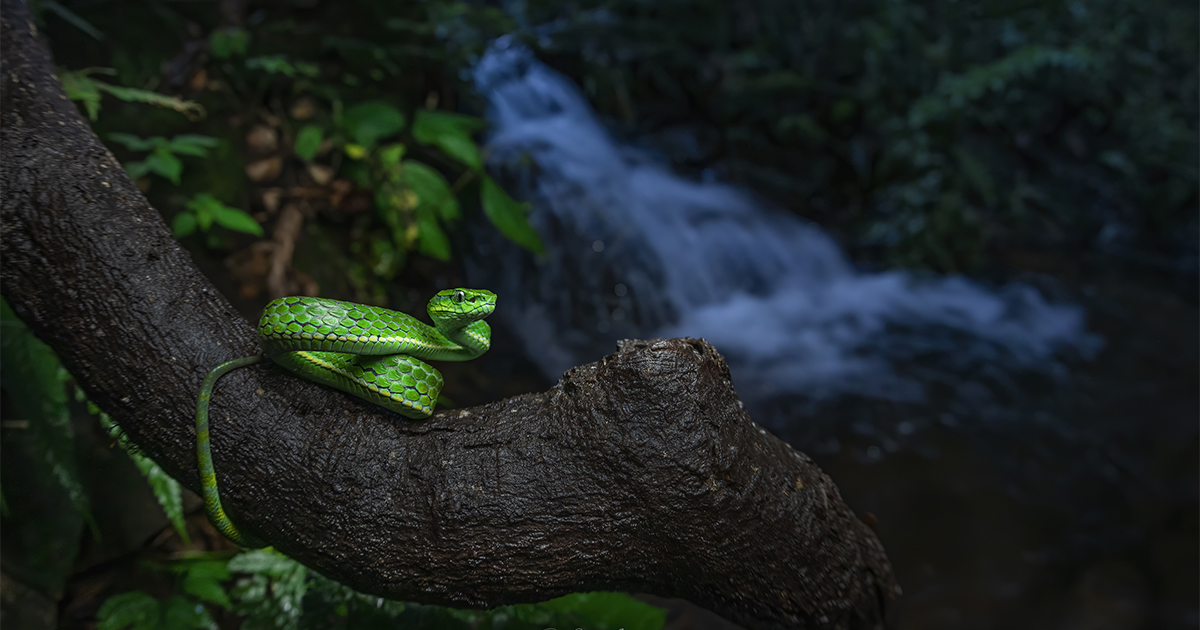Life happened on earth 3.5 billion years back and human life came in much later. In spite of scientific progress, about 70% of species still remain undiscovered and nameless. We have discovered about 1.7 million species on land and in water. So what remains undiscovered is a huge portion of our biodiversity. Against the background of still unknown richness of biodiversity, this century has witnessed rapid extinctions of species. Millions of species are disappearing directly as a result of human destruction of natural habitats.

There are about 7000 species of known amphibians. Among vertebrates, they are the third largest group – after fishes and birds. Many amphibians are yet to be discovered and many aspects of the known species are unknown. On the express road to discoveries, descriptions and conservation action is an urgent need.
Amphibians were the first vertebrates to venture out onto land. The earliest amphibians resembled modern coelacanth and lungfish both of which have leg-like fins that enabled them to crawl on land. Once acquiring solid land, these animals underwent drastic adaptations that sowed the seeds for the evolution of all higher group of vertebrates. Though small in size, amphibians have successfully survived the massive upheavals on earth which wiped out the midgets as well as giants like dinosaurs. Currently, these hardy survivors of cataclysmic events are helpless to handle habitat destruction that threatens them with extinction. As agents of this massive habitat destruction, it is high time that we take action and conserve these beautiful creatures before they go extinct.
Amphibians fascinate us not only because they have lived on this earth longer than us but also because of their beauty, behaviour and biological characteristics. Many amphibian activities have human friendly results: they control pests of agriculture and vectors of diseases like malaria. They contribute to healthy ecosystems by being a vital link between aquatic and terrestrial ecosystems. Amphibians are also an asset to biomedical research; by studying the permeable skin of amphibians, scientists have made advancements towards potential painkillers, HIV and skin cancer treatments. Frogs are indicators of ecosystem health. Silence of frogs is a loud message that something is seriously wrong with our ecosystems.
SEARCH FOR THE LOST AMPHIBIANS
Teams of scientists and naturalists from India have started the lost amphibian search. This initiative is launched with the hope of rediscovering over 50 species of lost amphibians in India. These animals are feared to be extinct but there is hope that some may be holding on in a few remote places. This search, which is taking place in 15 states of India, is the first ever coordinated effort to find such a large number of lost creatures. Globally amphibian populations are on a shocking decline – with more than 30 per cent of all species threatened with extinction.
ABOUT CHIEF COORDINATOR – LAI
Sathyabhama Das Biju (SD Biju) is a Professor in the Department of Environmental Biology (Systematics Lab http://www.frogindia.org/), University of Delhi. He has a PhD in Biology (Animal Science: Amphibians) from Vrije Universiteit (Brussels) with the greatest distinction, as well as a PhD in Botany from Calicut University in plant systematics. He is also Scientific Associate at the British Museum of Natural History, London and a visiting researcher/faculty at Vrije Universiteit, Brussels. SD Biju specializes in systematics of Indian amphibians, with over 25 years of field experience. He discovered over 100 new species of amphibians (46 formally described till 2011), including the description of a new family, six new genera and the smallest Indian tetrapod. SD Biju is the recipient of the prestigious IUCN/SSC Amphibian Specialist Group’s Sabin Award for the year 2008 in recognition of his amphibian research and conservation initiatives. The award carried a cash prize of 25,000 USD and a citation. Presently, he is the coordinator of Lost! Amphibians of India program, an initiative to rediscover 50 ‘lost’ amphibians which have been not reported after their original description, for a period ranging from 30 to 170 years.
http://www.lostspeciesindia.org/LAI2/
For complete publication and research visit: http://www.frogindia.org/




